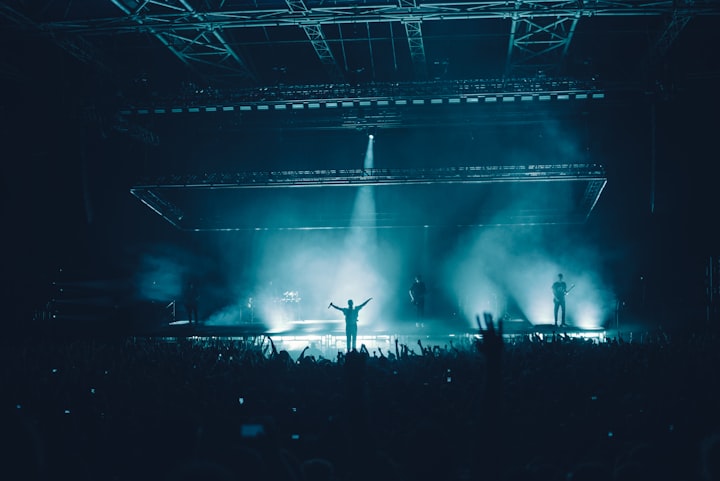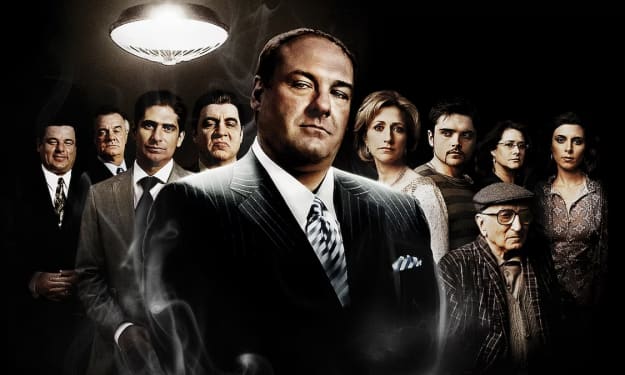The Golden Age of Emo
And of my high anxiety

“And though you’re dead and gone, believe me, your memory will carry on.”
--Welcome to the Black Parade by My Chemical Romance
It would have been sometime in early 2008, a school night, when I was flashing a ticketing website in front of my dad, pleading him to purchase us two general admissions to a My Chemical Romance concert in May. I’d missed the band’s performance at the Sydney Entertainment Centre the previous November – before their music consumed my daily listening habits – and was hell bent on catching them during the final leg of their Black Parade World Tour, some 16,000km away in Madison Square Garden, New York City.
As amenable as my dad was (and still is) he drew the line at that request – a very reasonable response in retrospect. It was a ridiculous little exchange, and I was a ridiculous 13-year-old, but so is the general animation of teenage mentality. Impulsivity was common and naivety was intrinsic, and to some extent these traits never really do abandon us, the only real difference is that in your teenage years there’s almost invariably a parental buffer that renders the consequences of your puerile actions not-so-consequential.
They were simpler times, by which I mean more forgiving times, where personal responsibility was a fraction of what it is now and where one’s impetuous intentions (like flying to New York to see a band) were negated through a caring and reasoned paternalism.
It was a time when emo music had achieved mainstream appeal, and the sub-culture was ingratiating itself with schools of impassioned teenagers who were just starting to cultivate their musical tastes and iTunes libraries. Panic! At The Disco, Fall Out Boy, Paramore, AFI, Placebo, The Getaway Plan, and, of course, My Chemical Romance, just to name a few, had all released a collective of quintessential albums within three years of each other, ranging from the single, “I Write Sins Not Tragedies” in 2005, to “Other Voices, Other Rooms” in 2008.
These were the tracks that filled my iPod and blared in my ears as I waited for the bus in the morning, as I lounged during lunch, and as I walked home in the afternoon. And with every additional playback, etching deeper and starker in my mind the outline of an era – of a personal embrace of an alternative genre, and the pleasant escapsim that it so graciously offered.
Those teenage years, you see – my teenage years – were nothing if not marred by a duo of adolescent banes.
School, and its mounting, militaristic demands for academic perfection plunged me into a morass – perennial and tachycardic in its way. The tedious and trialling ordeal that is the high school curriculum was, I think, an experience reserved, in full, for the likes of underachievers like myself.
But the true, unwavering infirmity that seized every moment, every aspect of my teenage life took the form of a ceaseless, insipid anxiety. It was a brand of anxiousness that beset every waking moment with dread. Dread of nothing and everything. It was that relentless anticipation of things –dreadful things – that would never happen, but for which I thought were an imminent inevitability. What if I accidentally say this, or do that? What if they think I'm...
In this way, I was my own worst enemy – too in mind own head; giving way to wretched fantasies that could never marry reality. And, in this way, music – emo music – was my own, mellifluous form of existential respite. Music can have that effect. For me – and for many, i'm sure – music has a magic to it; a powerful, inexplicable ability to draw you out of yourself and partition you from your ailing emotions and the reality of your afflictions. For me, these bands – AFI to Paramore – never failed to mollify the stress of school and silence the white noise of my anxiety.
And so it is, that more than a decade later when I listen to these songs, or re-watch a music video, I’ll every so often be graced with a lucid memory or the déjà vu of a time when emo was regnant and when emotional salvation wasn't more than a click away.
About the Creator
Brandon Lever
What can i say? I like to write:)
Mostly about society and culture.






Comments
There are no comments for this story
Be the first to respond and start the conversation.